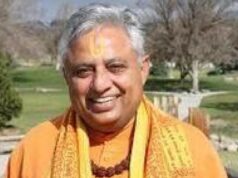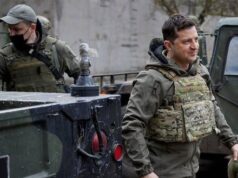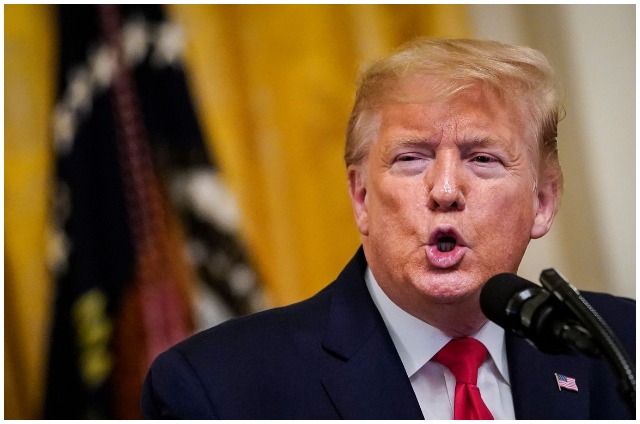Washington – As his selective immigration ban caused anxiety to travellers all over the world, as chaos erupted at US airports and as world leaders expressed condemnation, US President Donald Trump was creating his own facts on the ground.
He signed an executive order setting out the composition of his National Security Council (NSC), whose dry text belied its significance.
Trump made his controversial chief strategist Stephen Bannon a permanent member of this key body, while at the same time removing the chairman of the Joint Chiefs of Staff and the director of national intelligence.
The heads of the powerful US military and of intelligence will in future attend only when the NSC considers issues in their areas.


This is remarkable for two reasons. Bannon’s status has received a huge boost, as he will sit in the NSC’s principals committee alongside the secretaries of state and defence.
Secondly, the move shows up the competing currents within the Trump administration on the US role on the global stage.
With regard to foreign policy, the administration is divided into several groupings. The traditionalists include Defence Secretary James Mattis, a retired general now running the Pentagon.
Among the hardliners is National Security Advisor Michael Flynn, another retired general, who sees the US in a war against terrorism. And then there are those pushing Trump’s “America First” agenda.
From Trump’s perspective the direction is clear: US foreign policy should pursue exclusively US interests. Diplomacy is to be seen as “deal making” – as manoeuvring at the negotiating table, always with the aim of extracting maximum gain for the US.
The traditional role as “leader of the free world” no longer seems to fit, as Trump apparently has little interest in defending the liberal world order of which his own country was one of the main architects.
In the view of Thomas Wright of the Washington think tank, the Brookings Institution, Trump does not have a large core of supporters ready to implement his world view.
Bannon is an exception, although he is by no means an expert in the area, Wright wrote recently.
Bannon is strongly ideological, saying in 2013 that he was a Leninist, because Lenin wanted to destroy the state and that was his aim as well.
As head of the Breitbart News website he has openly pushed a nationalist agenda and has been accused of white supremacism and even anti-Semitism, although the website has denied this.
Some in the US media have taken to referring to him as a puppeteer, as his influence on Trump is so large. Trump’s foreboding inaugural speech is said to have been largely Bannon’s work.
Bannon’s hand is also seen behind the ban prohibiting travellers from seven largely Muslim countries from entering the US.
Bannon has no experience in security policy. He served as a US Navy officer more than 20 years ago.
There has been outrage within the Washington foreign policy establishment at the decision to give him a permanent seat on the NSC principals committee, while downgrading the top military and intelligence heads.
“The last place you want to put somebody who worries about politics is in a room where they’re talking about national security,” former White House chief of staff Leon Panetta, who has also served as defence secretary, told the New York Times.
Bannon’s primary role was “to control or guide the president’s conscience based on his campaign promises. That’s not what the NSC is supposed to be about,” said Panetta, who also served as CIA director for two years.
Prominent Republican Senator John McCain has stated his concern at the politicization of a forum that functions as the nervous system of US foreign and security policy.
By this move Trump is making sure that his world view is presented when the NSC committee meets – the president himself does not hold a permanent seat.
It became clear during Senate hearings on Trump appointments that there are differences of opinion within the administration.
Defence Secretary Mattis is a firm advocate of NATO’s role and is opposed to any rapprochement with Russia.
CIA director Mike Pompeo intends to pursue the hacking trail that leads to Moscow, and even Rex Tillerson, if he gains Senate approval as the new secretary of state, appears to want to continue with traditional US foreign policy.
The White House has been at pains to play down the furore over the NSC appointments.
White House spokesman Sean Spicer once again accused the media of disseminating false information. The notion that Trump had downgraded the chief of staff and the intelligence director was “utter nonsense,” he said.
Reaction from the Pentagon has been outwardly calm. Nothing had changed in the role of General Joseph Dunford, the chairman of the Joint Chiefs of Staff, spokesman Jeff Davis said on Monday.
Mattis saw Dunford as his most important military adviser and planned to have him constantly at his side when matters of national security were discussed, Davis said in clearly diplomatic language.
-dpa










